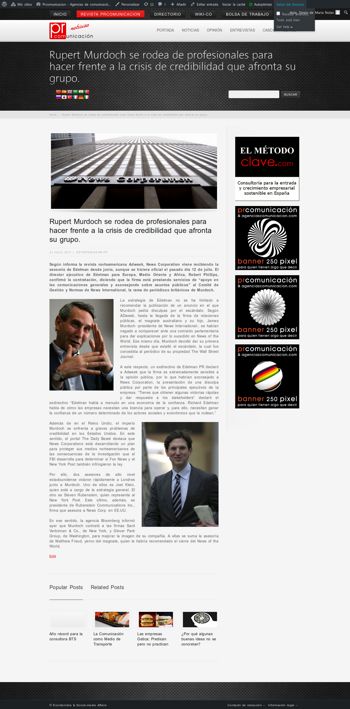Interview with Jaime Avila, General Director of Recursos de Mercado, in which we address aspects related to the crisis that News Corporation, Rupert Murdoch’s media group, is going through after the illegal eavesdropping scandal carried out by his newspaper News of the World.
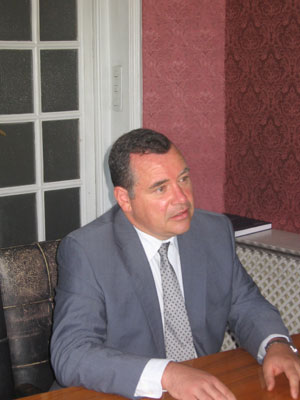
On the website of Recursos de Mercado (RdM), I read that their differential value as an agency is not Crisis Communication. What exactly do they mean by this?
There is a story about the president of a company who, faced with a complex situation, asked his advisors for the ideal person to fill such a delicate position. After presenting him with a number of candidates who had successfully dealt with crises in their respective departments or areas of responsibility, the chairman asked them: “And … don’t we have anyone who has never got us into trouble?
The best way to deal with a crisis is to avoid it or, if it does occur, to make it go almost unnoticed. The rest are toasts to the sun and gestures to the gallery that do nothing to help the client and, on occasions, do harm them. I never cease to be surprised by agencies that, in order to demonstrate their know-how, every time they have the opportunity, revive their clients’ crises in the general memory to show how right they are.
What do you think of the recent statements by Steven Fink, CEO of crisis management company Lexicon Communications Corp., to www.cnnexpansion.com, regarding the Murdoch case?
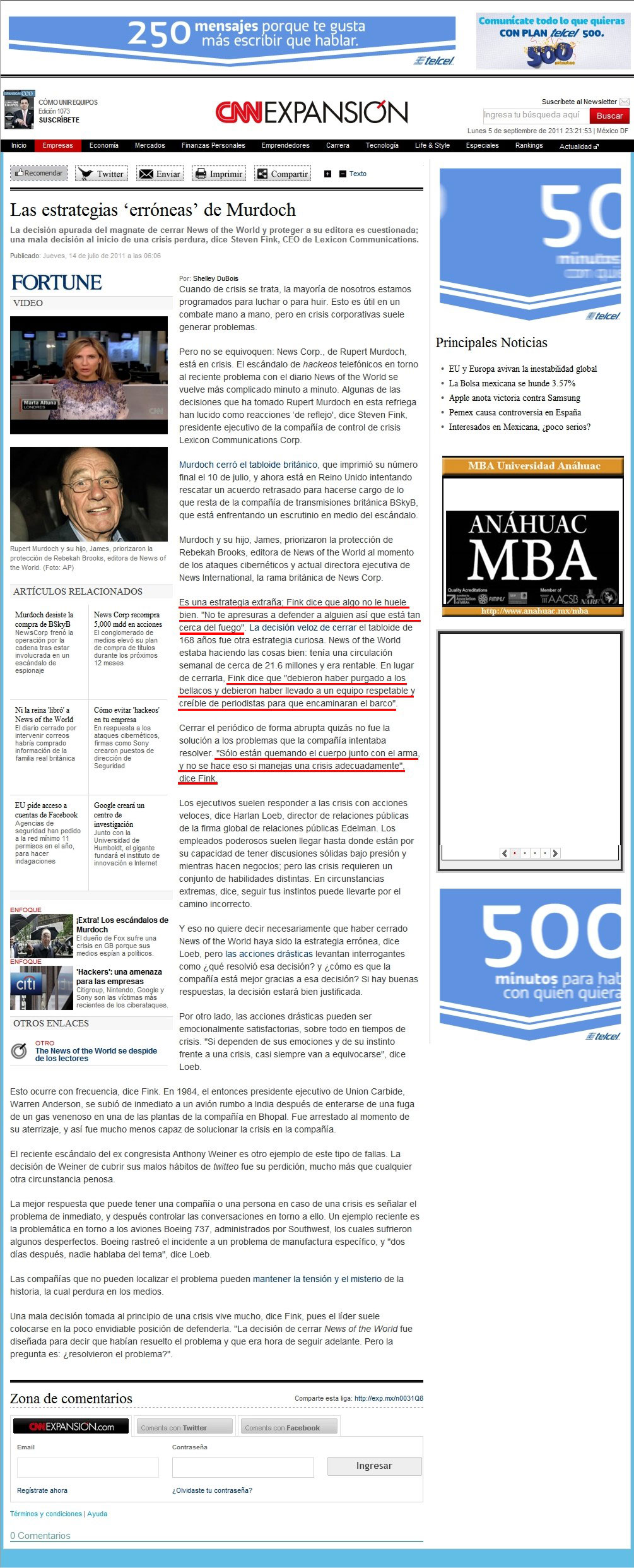 In a crisis, first of all you have to get the organisation itself involved. You have to close ranks, the problem is everyone’s problem and, one way or another, we are all going to get through it. From my point of view, Murdoch and his team had it very clear, the worst thing that could happen to them is that unhappy employees would leak unwanted information from within the organisation itself. On this occasion, I would venture to say with almost certainty that following Fink’s recommendations when he says: “they should have purged the miscreants and brought in a respectable and credible team of journalists to steer the ship”, would have been suicide.
In a crisis, first of all you have to get the organisation itself involved. You have to close ranks, the problem is everyone’s problem and, one way or another, we are all going to get through it. From my point of view, Murdoch and his team had it very clear, the worst thing that could happen to them is that unhappy employees would leak unwanted information from within the organisation itself. On this occasion, I would venture to say with almost certainty that following Fink’s recommendations when he says: “they should have purged the miscreants and brought in a respectable and credible team of journalists to steer the ship”, would have been suicide.
How does one involve the organisation in a case like this?
What for Fink is a strange strategy that doesn’t smell right “You don’t rush to defend someone so close to the fire”, for me is an obvious and successful strategy. First of all, you have to get the unconditional buy-in of the people who are going to take responsibility for the events that happened. You have to isolate the problem and the responsibility; what is colloquially known as “not pulling the blanket”. To this end, I assume that Murdoch, in addition to a promising professional future, will have offered them what they need most at the moment, an effective legal defence. In this sense, I don’t think they will spare no expense. In this way, Murdoch would also ensure that the lawyers advising the defendants take into account the general interests of the group.
As far as the rest of the team is concerned, it is enough to make a more or less explicit commitment for the future. Nobody bites the hand that feeds them.
Steven Fink, you think closing the News of the World was a mistake, what do you think?
Steven Fink has limited himself to a superficial analysis of the consequences of one of the many possible scenarios that the Murdoch team had to face. A scenario is a description of what could happen, so keeping the News of the World, among others, in business at the time would have meant:
- Adding difficulties to the closing of the operation to buy BSkyB, a television channel with a turnover of 6 billion euros a year, by not sacrificing, temporarily, a business with an annual turnover of 150 million euros, which is strategically considered to be in decline. In other words, “Putting the queen at risk by not wanting to sacrifice a pawn”.
- Subjecting the newspaper, for the duration of the crisis, to a much greater erosion of its image and credibility than keeping the masthead on standby.
- Not taking any personal responsibility in the eyes of the public.
- Offloading the responsibility onto a specific group of people, rather than onto an “abstract entity”, the newspaper.
- “Criminalising” in the eyes of the public some of the newspaper’s staff, whose collaboration is considered essential to try to isolate the problem.
- Missing the opportunity to transmit to the public authorities, in a veiled manner, the consequences, in terms of employment, that excessive pressure on a business group that employs more than 50,000 people around the world could have; while drawing the attention of 200 workers to the importance for their professional future of closing ranks in the face of the problem.
- To endure the added “negative publicity” of millions of copies of the newspaper, the focus of the problem, in the points of sale. What Fink would call, if he had thought about it, publicly exposing “the body along with the gun”.
- Publicly expose themselves to punishment from the newspaper’s readers, which would be evidenced in public opinion by a significant drop in sales, entering into a negative dynamic of gradual loss of circulation.
At this point a new focus of decision would appear which would raise two new scenarios, if we do not close the News of the World, do we maintain the current editorial line of the paper and risk it hurting us in the process or do we turn the paper around to avoid problems and then risk embarrassing ourselves and losing our readers?
… and so on as far as one is willing to go in the analysis. It will take years for Murdoch’s own team to know whether the decision was right or wrong, and they can never be sure what the results would have been if they had made one of the many alternative decisions.
Are you talking about scenarios?
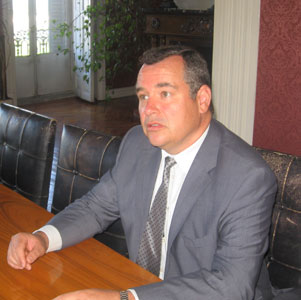
Although we can be sure that after a sufficient number of roulette spins, the number of reds and blacks, odd and even, will be close to 50%, it would be materially impossible for us to predict the outcome of the next spin. We cannot even be sure that it will be one of the two most likely options, since it is possible that it will be zero.
A crisis is an uncertainty resulting from a major deviation in the environment that threatens the future and even the survival of the organisation. They are usually very complex situations whose outcome is completely unpredictable. To attempt to predict what will happen is to offer a simplistic and static view of the future. It is therefore necessary to intuit the different likely scenarios and, if possible, also the possible scenarios, and to prepare appropriate response strategies for each case.
What are the different scenarios for Murdoch going forward?
The essence of marketing could be defined as common sense applied to business. If you are able to feel like the common sense of your target audience, in everything you do or say, you will get it right. But, given the obvious fact that this is materially impossible, research techniques and strategy come into play. Determining possible crisis scenarios is a simple but arduous task. It is best to surround yourself with a large and diverse team of people who can bring different perspectives to the issue.
With this caveat, without which my analysis would be as reckless, unfounded and insubstantial as others that have been made, I will limit myself to drawing attention to two risks which, in my opinion, have already marked the first phase of the crisis and which, if not dealt with properly, after this August holiday break, could complicate matters for the Murdoch team.
First of all, it is obvious that if the media did not report the affair, the crisis would quickly fizzle out. In this respect, I can assume that the sympathy for me, my colleagues at Lexicon and Edelman, must be similar to the sympathy for Murdoch and his group in the rest of the British, Australian and American media, i.e. none at all. As we have been saying for a long time, long before Burson Marsteller started saying it, the foundations for solving a crisis are laid before it happens; so I don’t want to miss the opportunity to invite my colleagues to have a coffee and talk about the future (jokes Jaime Avila).
Secondly, as you warned a few days ago in an article published in this blog, the Murdoch case is being used by the political class in half the world, mainly by David Cameron in the UK, to try to strike a blow to press freedom. In this respect, the best scenario that can be presented to Murdoch in the short term is that the social conflicts in England are radicalised and prolonged over time. For the moment, the protesters have managed to divert Cameron’s attention from the traditional media to the Internet and mobile telephony. It seems that what is really important now is to control social networks and messaging services.
Thus, on the one hand, we have a media willing to disseminate and magnify the message and two possible triggers, political interest and the current events of the criminal proceedings themselves.
How do you think the social unrest will affect the Murdoch case?
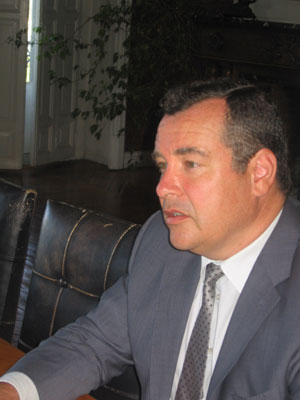
The social unrest has undoubtedly highlighted the serious social problems that exist in Britain, which, in my opinion, has taken the spotlight off the Murdoch case. On the other hand, David Cameron has made new enemies by directly confronting the police and large sections of British society. I believe that after the riots Murdoch is facing a weakened David Cameron, who has lost his credibility in the eyes of broad sectors of public opinion and who has too many open fronts, so he will need the support of the media. The current scenario is more favourable for Murdoch than could have been expected at the beginning of August.
What happens next, how should News Corporation act?
Although, as I have already said, it is materially impossible to predict the future, it is possible to influence it. That is to say, although it is impossible to know the result of the next toss, it is possible to toss the coin in such a way as to force a certain result. In order to get closer to the desired outcome, we must favour certain conditions that allow us to influence the future. Murdoch is interested in this at the moment:
- The social debate on the events of early August and on the administrative control of social networks, the right of individuals to transmit and receive information by any means, the presumption of innocence of users of social media technologies, the right of the individual to receive and impart information by any means, and the…
- Involve the media in a defence of freedom of expression, in the face of any attempt by the executive to exploit this isolated News of the World event to create a climate of social alarm to justify intervention.
And it has more than enough capacity to do so.
At the same time, I believe that Murdoch may have planned a coup effect in order, if necessary, to isolate the problem definitively in his own person. In this way, by withdrawing from the Group’s management, he could personally assume all social responsibility and leave a new team at the helm of News Corporation free of any kind of responsibility. In this respect, Rupert Murdoch has already taken the first steps by declaring on 11 August that, in the event of his permanent departure, News Corp’s CEO, Chase Carey, will be the person chosen to replace him.
According to the British newspaper The Guardian, Murdoch’s public expressions of regret came after News Corp. hired Edelman Communications. In the same vein, the US magazine ADweek claims that until the signing of the contract with this public relations firm, the Australian tycoon and his son, James Murdoch – chairman of News International – refused to appear before a parliamentary committee to explain themselves.
I do not believe that a person like Murdoch and the team that surrounds him would surrender unconditionally to the decisions of an external agency. Murdoch is fully aware that the consequences of this crisis will be paid for by him, his family and his business group, so he will always be the one making the decisions. The figure of Edelman I think is just another advisor to listen to before making a decision.
But for me, what is really striking in this case is that when the media pick up such information it is because someone has leaked it and, in this case, the only beneficiary of such statements would be Edelman himself. Murdoch is an old man who has been publicly humiliated in a manoeuvre orchestrated by the British political class to distract public attention from the serious social and economic problems facing the country. This is the message that should have been leaked to the media and not that of a haughty man who until Edelman’s arrival refused to cooperate with the government.
Would you have advised Murdoch to testify in Parliament?
I don’t think I would have had the opportunity to advise him, at a certain point I am convinced that everybody, starting with Murdoch himself, was fully aware that there was no other choice. That they disliked having to participate in such a pantomime, I understand that, I do too, and I have nothing to do with it.
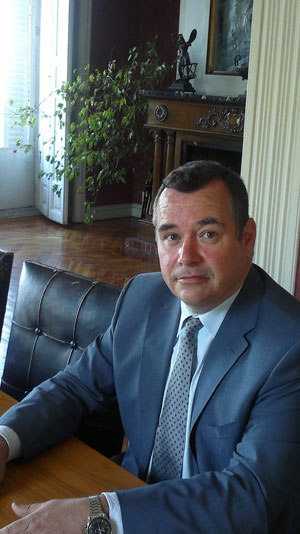
Either way, the communication strategy must be adapted to the characteristics of the spokesperson who must defend it, or vice versa. On this occasion, Murdoch was the perfect spokesperson for the situation. Under the skin of a venerable old man “dragged under the horses’ feet” by politicians incapable of even protecting his physical integrity, he is a great negotiator used to handling complex situations, a very persuasive and extremely intelligent man.
What about training programmes for spokespersons?
They are all very well for filling out CVs and, with time, practice and work, polishing defects and improving certain aspects. But a spokesperson must, above all, transmit credibility and the only way to do this is by being yourself. One of the biggest mistakes agencies make is to try to make people act during their public interventions. They are managers, not actors, and in the case of a crisis, they have a lot at stake in front of an extremely critical and suspicious public.
Thank you very much for all the information you have provided and we look forward to your continued cooperation.
Thank you very much for giving me the opportunity.
Interview with Jaime Ávila Rodríguez de Mier
General Director of Recursos de Mercado
Published on 6 september 2011 in the magazine:

